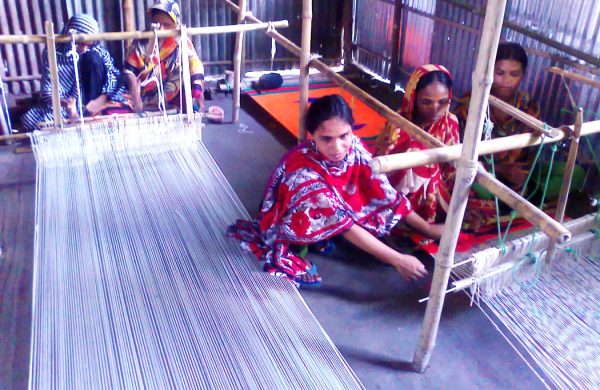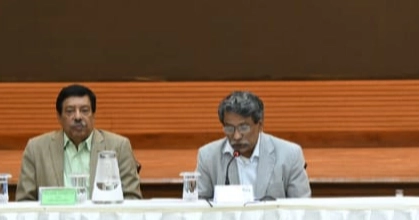A legal guide to follow if someone gets arrested
- Update Time : Monday, April 21, 2025

—Gazi Sirazul Islam—
Being arrested is one of the most traumatic experiences that can befall an individual. Whether the arrest is caused by a misunderstanding, mistaken identity, or suspected legal infraction, the legal fallout is serious and far-reaching. Arrests in Bangladesh are governed by a combination of constitutional provisions, statutes, and judicial norms for the purpose of ensuring the rule of law and protection of fundamental rights. Understanding the applicable laws and procedures is required to ensure respect for legal rights and that justice is delivered equally.
The Bangladesh law governing arrest is based mainly on the Constitution and the 1898 Code of Criminal Procedure (CrPC). Section 54 of the CrPC authorizes law enforcement officers, particularly the police, to arrest individuals without a warrant in specific circumstances. These are situations in which the individual is suspected to be engaging in habitual criminal behavior, caught red-handed, or charged with a recognisable offense. But such powers are not limitless. In fact, the Constitution of Bangladesh, Article 33, dictates that all individuals who are arrested must be informed why they have been arrested and should be offered a lawyer of their choice.
The Supreme Court of Bangladesh also laid down certain guidelines to prevent misuse of the power of arrest, particularly under Section 54 of the CrPC. These guidelines were established because of increasing concerns regarding arbitrary arrest and custodial torture. They require the police to give valid reasons for arrest, make persons arrested free from abuse and ill-treatment, and ensure that arrestees be produced before a magistrate within 24 hours, excluding time taken in transit. This legal provision avoids illegal arrest and safeguards common people’s rights.
Immediate protection at arrest is available under criminal law as well as constitutional law. One of the oldest of legal rights is the right to be told the grounds for arrest without unreasonable delay. This discourages secret detentions and helps ensure openness of law enforcement. The right to legal counsel is also guaranteed. If a person cannot afford to pay for private lawyers, then one can get free legal consultancy under the National Legal Aid Services Organization (NLASO), which is working under the Ministry of Law, Justice and Parliamentary Affairs. It assists the lower-income class people by providing legal aid and ensures that no one is deprived of justice on the grounds of affordability.
The second significant legal requirement is that the individual arrested must be brought before a magistrate within 24 hours of arrest. The Constitution and the Code of Criminal Procedure both include this provision. Its non-compliance can result in legal action against the arresting police personnel and render the arrest itself nugatory. The habeas corpus rule to protect against illegal detention can also be invoked by way of a writ petition in the High Court if proper procedure is not followed.
Once produced before the magistrate, the legal process can take different courses of action depending upon the nature of the alleged offence. If the offence is bailable, the individual can be released on furnishing bail. For bailable offences, discretionary powers of the court can allow for bail subject to the situation in the case. The defence lawyer is most important in such a case because a well-prepared application for bail with accompanying documents and grounds has a profound impact on the court’s decision.
In some other cases, remand may be sought by the police, where the accused can be taken back into custody for further interrogation. Courts must use extreme care while handling remand applications. As per the guidelines of the Supreme Court, a magistrate must personally visit the accused before issuing remand and must ensure that the individual is not tortured or subjected to inhuman treatment during police custody. The accused is also entitled to be medically examined both before and after the remand period to verify if any abuse has been committed.
In case the arrest is found to be unjust or politically motivated, there is legal remedy available. A writ petition may be filed in the High Court under Article 102 of the Constitution against the illegality of the arrest. The court can order release forthwith or compensation in case of violation of constitutional rights. Alongside, if arrest leads to custodial death or torture, it can be addressed under the Torture and Custodial Death (Prevention) Act, 2013. The said legislation was established so that victims of custodial violation can be administered justice and that law enforcement agents can be brought to justice through criminal accountability for their wrongdoing.
In addition to solutions in the court, it is also necessary to acquire and preserve case-related documents such as the First Information Report (FIR), witness statements, and medical reports. These documents are critical in establishing a strong legal defence. Legal advisors can request certified copies from the concerned police station or court registry. Early acquisition of these records may determine the trial’s decision and could help remove frivolous charges at an early stage.
In some instances, the court may recommend other ways of resolving conflicts, especially for minor infractions. Compromise or mediation, where appropriate, can save time and money for both the judiciary and parties concerned. Such mechanisms also relieve the courts and maintain harmony within communities.
The consequences of arrest do not stop at legal process. Arrest has deep social and psychological impacts. Arrest can ruin reputation, result in loss of employment, and inflict mental trauma on families. Hence, legal practitioners advise prompt legal action and maintaining calmness throughout the process. Retaining silence until the attorney-at-law’s arrival is generally considered a wise measure, especially while interacting with the police or providing statements during interrogation.
There are certain organizations in Bangladesh that provide legal education and support services to help individuals learn about their rights and deal with the justice system. Besides the government legal aid facilities, non-governmental organizations such as Ain o Salish Kendra (ASK), Bangladesh Legal Aid and Services Trust (BLAST), and others have played a central role in advocating legal reform and representing marginalized communities.
Media and civil society also need to play a critical role in holding law enforcers to account and awareness-raising. Reporting unlawful arrests or police violence has created public debate and reform of the laws over time. Documentation of incidences of abuse in custody, advocacy for training police, and judicial transparency are ongoing activities journalists, human rights activists, and legal professionals must perform.
Lastly, just because someone is arrested does not mean the person is guilty. In Bangladesh, as in other democratic nations, the doctrine of presumed innocence is an essential pillar of criminal justice. All individuals are entitled to defense, receive legal help, and be treated with dignity at every stage of the judicial process. Although the system is imperfect, knowledge, swift action, and accessibility of sufficient legal facilities can go a long way.
Understanding of the law not only makes citizens stronger but also strengthens the entire justice system. Knowing what to do following an arrest-from legal advice and court proceedings to safeguarding human rights-ensures that justice is administered fairly, efficiently, and accountably.
—————————————————-
The writer is an Advocate



















